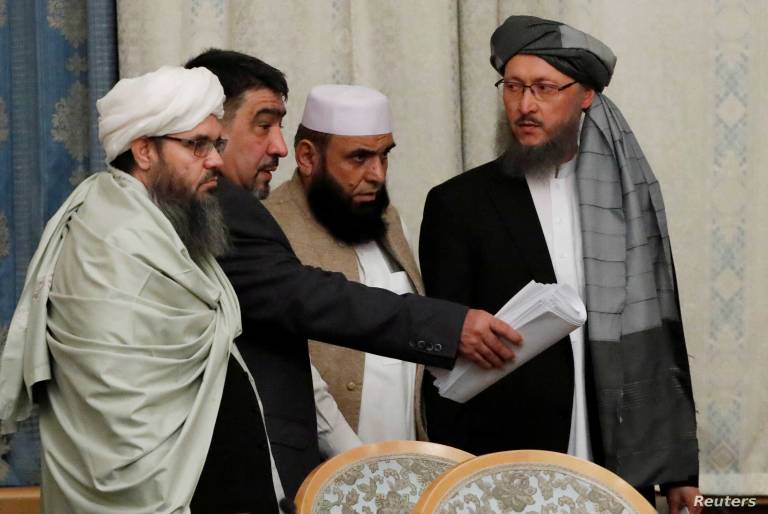The Afghan government hosted a three-member delegation of the Taliban on Tuesday, March 31, in the capital Kabul, to discuss a prisoner swap modus operandi in face-to-face meeting, the country’s national security council said in a tweet. The Office of National Security Council confirmed that a technical committee of the Peace Initial Contact Group (PICG) hosted a Taliban technical delegation in Kabul to discuss prisoner release.
The meeting comes while the two sides held several video calls to discuss issues related to prisoner exchange. The Taliban claim that as many as 1,000 prisoners of the Afghan government are detained in detention centers run by the militant group albeit senior Afghan security officials have contradicted the figures claimed by the Taliban.
Under the US-Taliban peace deal, the Afghan government has to release up to 5,000 Taliban inmates in exchange for 1,000 Afghan security forces who are kept in Taliban-run prisons as part of a confidence-building measure between the Taliban militants and the Afghan government.
“The PICG technical committee and the Taliban delegation made progress on technical matters and will reconvene tomorrow for more negotiations,” reads a tweet by the Office of National Security Council (ONSC).
Under the agreement, the prisoner swap will be observed by International Committee of the Red Cross, US, and Qatar.
Prisoner swap between the Afghan government and the Taliban is a multi-layered disputed issue, with each side of the deadly war trying to gain more before sitting face-to-face around a peace table, titled as the intra-Afghan talks. On March 01, a day after the US-Taliban deal was signed in Doha, President Ashraf Ghani announced that his government would release Taliban prisoners on certain condition. The Taliban should commit a truce and put an end to violence, he said.
The Taliban fighters, however, continued to attack Afghan security forces. On March 20, a group of armed men, assisted by infiltrator from within the Afghan police, killed 17 Afghan security forces including army personnel in southern Zabul province which is a stronghold of the Taliban. A Taliban spokesperson claimed responsibility for the attack.
On March 28, the Taliban insurgents launched a series of attacks in northern provinces of Faryab, Kunduz and Badakhshan, inflicting heavy causalities on Afghan security forces. On March 30, the insurgents attacked Afghan security forces in the south, reportedly killing 11 Afghan soldiers. The Afghan security authorities said rebels attacked on security checkpoint in Arghandab district of southern Helmand province, another Taliban stronghold. The Taliban refused to take responsibility for the attack.
In northern Baghlan province, at least five Afghan policemen were killed when their checkpoint came under Taliban attack, a member of provincial council said. Six others were wounded he confirmed.
Hints of progress in prisoner swap between the Afghan government and the Taliban appear at a time when the country is swamped in squabbling political crisis and threatened by fatal outbreak of Covid-19. The country’s political turmoil has divided Afghan political factions at a critical time when Washington tries to pull out troops and the Taliban struggle to tilt the balance in their favor. Latest official record shows that 169 people have tested positive for Covid-19 and four patients—infected by the deadly pandemic coronavirus—have passed away.
Though the US and NATO officials have made attempts to bring Afghan President Ashraf Ghani and his rival Abdullah Abdullha on terms to form an inclusive government, little has been achieved as the two sides still stick to their squabbling positions.




